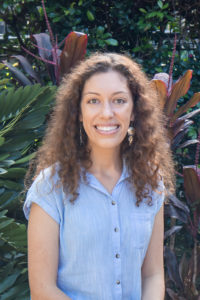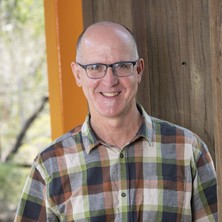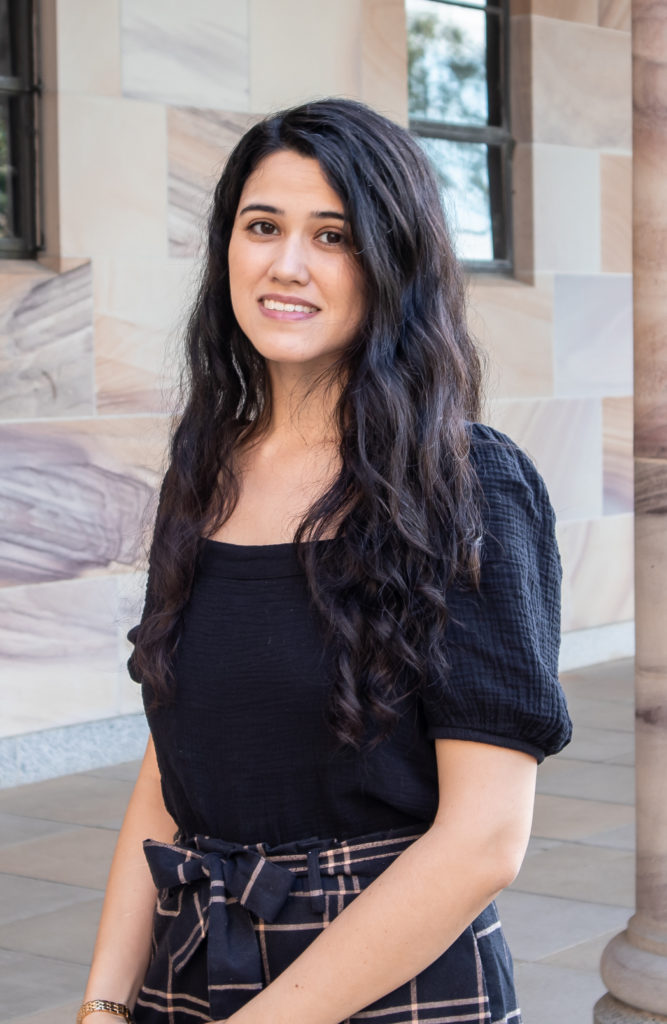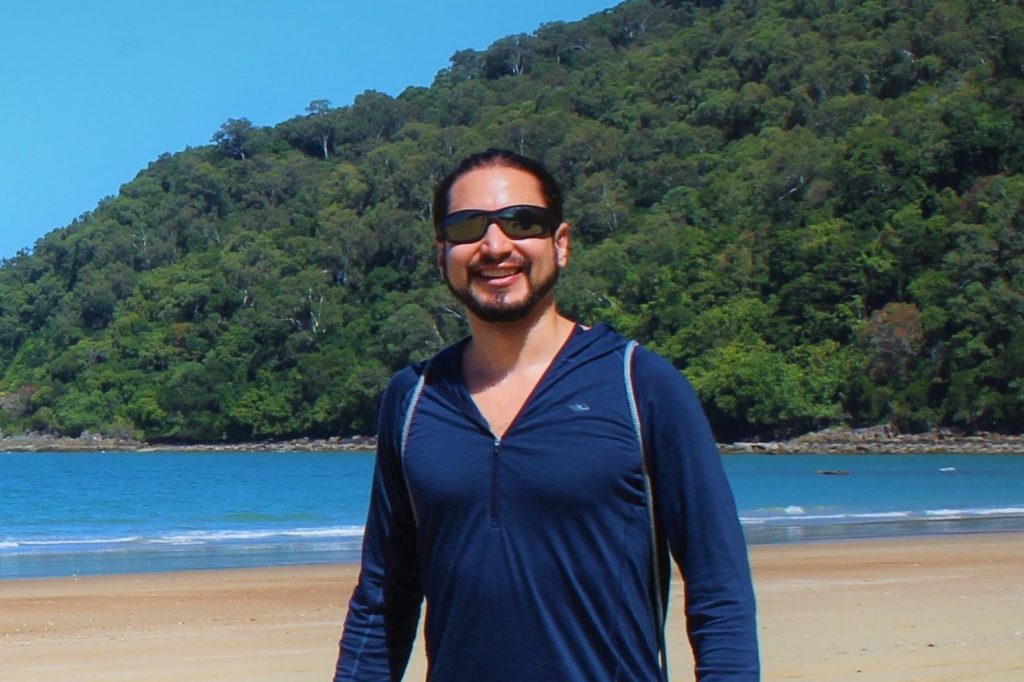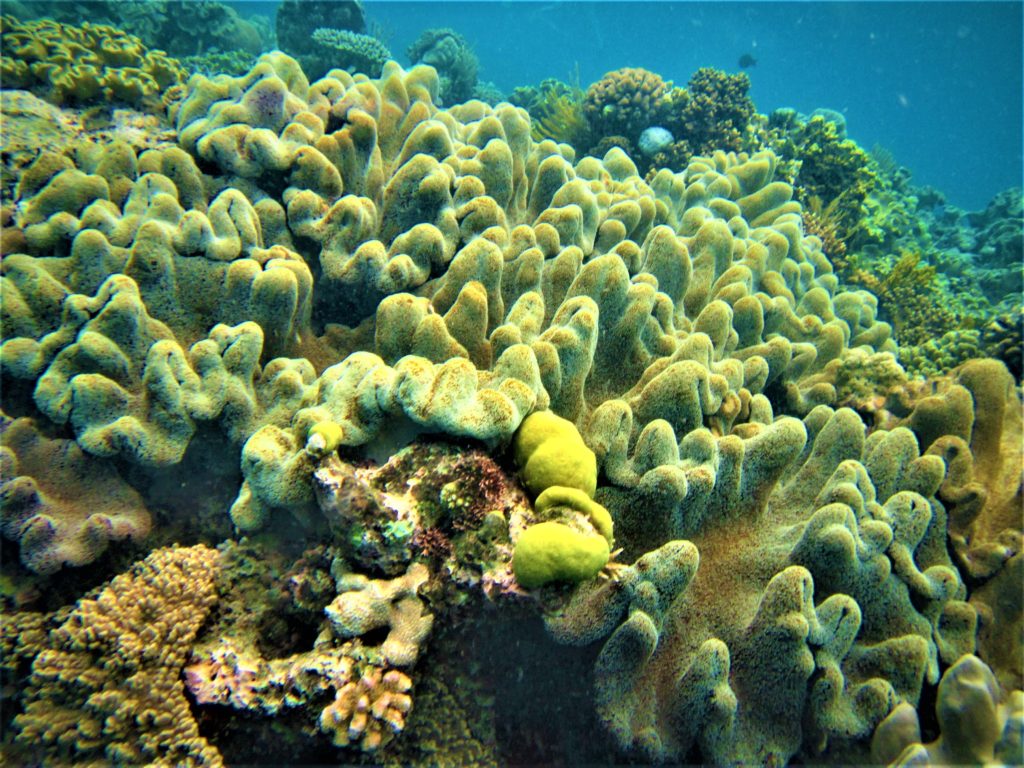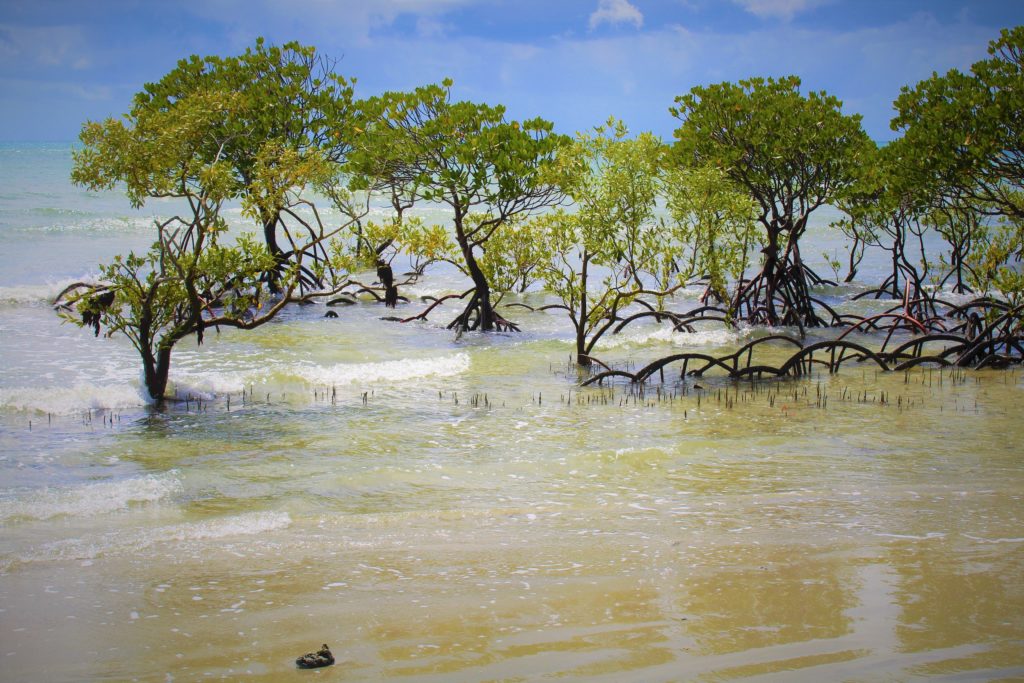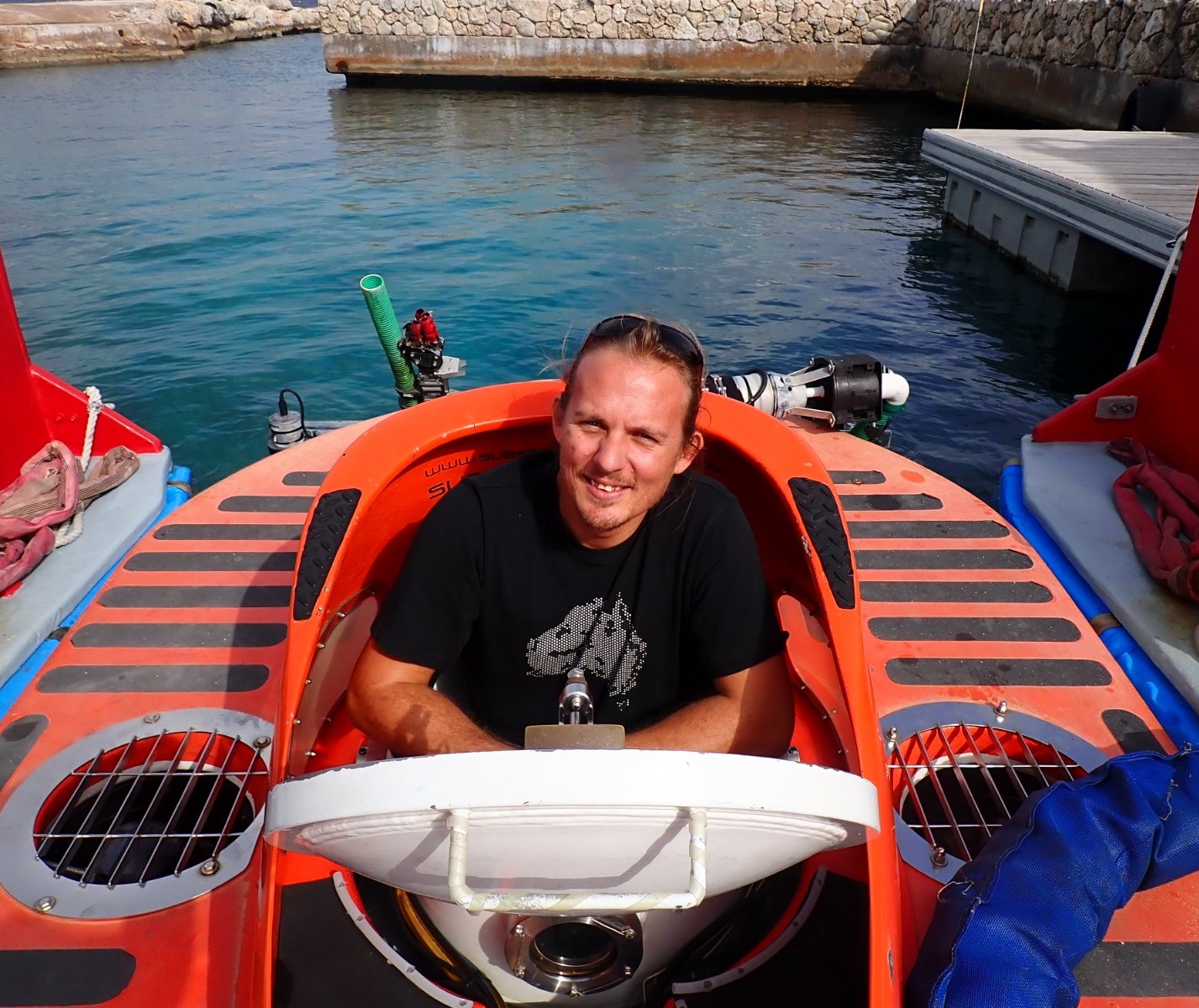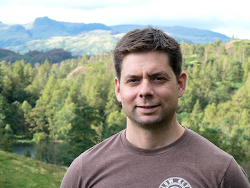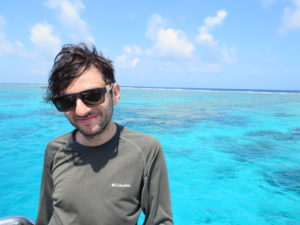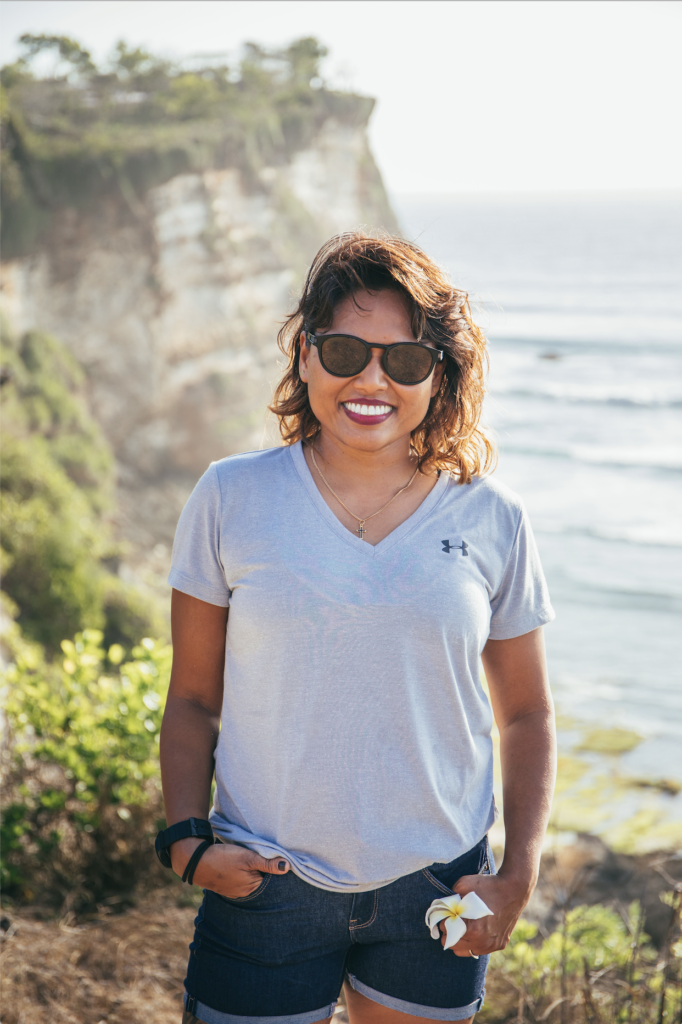Professor Mark Moran has a unique background that includes both social science research and applied development projects, in a career spanning academia, non-profits, government and consultancy. His cross-sectoral career is a strength for his current research, which focuses on the science of development effectiveness, toward forging new collaborations between academia and development practice.
His work traverses Indigenous and international development contexts, including Aboriginal Australia, Native America, Bolivia, China, Papua New Guinea, Timor Leste and Lesotho. Additionally, he has comprehensive research and practical experience in complex and politicised development contexts, including project and stakeholder management, governance, public finance management, participation, community planning, social housing, water and sanitation.
He is currently collaborating with WWF on the Coral Reef Rescue Initiative (CRRI), given its strong focus on livelihood development of coastal communities, and their role in local coral reef conservation.
Qualifications
- B Civil Engineering (Honours), Queensland University of Technology
- PhD in Geography and Planning, The University of Queensland
Selected Publications
Book
Mark Moran and Jodie Curth-Bibb eds. (2020). Too close to ignore: Australia’s borderland with PNG and Indonesia. Melbourne, VIC, Australia: Melbourne University Press.
Moran, Mark (2016). Serious whitefella stuff: when solutions became the problem in Indigenous affairs. Carlton, Victoria, Australia: Melbourne University Press.
Book Chapter
Moran, Mark, Simpson Reeves, Laura and Wright, Alyson (2018). Complicating dynamics: the challenge of adapting the sustainable livelihoods framework to a remote Indigenous context in Australia. Routledge Handbook of Community Development Research. (pp. 146-160) edited by Lynda Shevellar and Peter Westoby. London, United Kingdom: Routledge. doi: 10.4324/9781315612829-10
Moran, Mark (2016). Closing the gap is proving hard, but by working developmentally we can do better. Ideas for Australia: 10 big issues for election 2016 and beyond. (pp. 102-105) edited by The Conversation. Sydney, NSW, Australia: Future Leaders.
Hutchins T and Moran M (2011). Not another service provider: partnering for sustainability. Annual Program Review 2010. (pp. 13-16) Melbourne, VIC, Australia: World Vision Australia.
Journal Article
Hendrix, Burke A., Delaney, Danielle, Witmer, Richard C., Moran, Mark, Sanders, Will and Ganter, Elizabeth (2019). Building capacity in indigenous governance: Comparing the Australian and American experiences. Australian Journal of Public Administration, 79 (1) 1467-8500.12403, 26-40. doi: 10.1111/1467-8500.12403
Staines, Zoe and Moran, Mark (2019). Complexity and hybrid effects in the delivery and evaluation of youth programs in a remote Indigenous community. Australian Journal of Public Administration, 79 (1) 1467-8500.12371, 3-25. doi: 10.1111/1467-8500.12371
Moran, Mark (2018, 11 23). In the post-APEC scramble to lavish funds on PNG, here’s what the country really needs The Conversation
Moran, Mark (2018). The courage to reform: Fixing the Commonwealth’s Indigenous policies. Griffith Review, 60
Nash, Daphne, Memmott, Paul and Moran, Mark (2017). House rules: a study of conditionality and indigenous social housing tenancies in urban, regional and remote Australia. Indigenous Law Bulletin, 8 (30), 15-19.
Moran, Mark, Porter, Doug and Curth-Bibb, Jodie (2016). The Impact of Funding Modalities on the Performance of Indigenous Organisations. Australian Journal of Public Administration, 75 (3), 359-372. doi: 10.1111/1467-8500.12192
Moran, Mark (2016). The wicked problem of alcohol management. Inside Story
Moran, Mark (2016, 03 04). How community-based innovation can help Australia close the Indigenous gap
Moran, Mark and Corpus, Gemina (2014). Adapting development practice to indigenous contexts. Development Bulletin, 76, 79-83.
Moran, Mark and Porter, Doug (2014). Reinventing the governance of public finances in remote Indigenous Australia. Australian Journal of Public Administration, 73 (1), 115-127. doi: 10.1111/1467-8500.12064
Moran, Mark (2013). Mothers know best: managing grog in Kowanyama. Griffith Review, 1 (40), 196-209.
Moran, Mark and Sullivan, Patrick (2012). The answer to Olga’s question?. On Line Opinion
Moran, Mark and Porter, Doug (2012). Breaking through bureaucracy in Indigenous governance. The Drum
Moran, Mark (2012, 07 06). The 30-year cycle: indigenous policy and the tide of public opinion
Moran, Mark (2012). Bridging the gap of Indigenous development. The Drum
Moran, Mark (2012). A different inequality. The Drum
Moran, Mark, Mcqueen, Kirsti and Szava, Anna (2010). Perceptions of home ownership among Indigenous home owners. Urban Policy and Research, 28 (3), 311-325. doi: 10.1080/08111146.2010.510552
Moran, Mark (2010). The intercultural practice of local governance in an Aboriginal settlement in Australia. Human Organization, 69 (1), 65-74. doi: 10.17730/humo.69.1.84r6r24512846574
Memmott, Paul, Moran, Mark, Birdsall-Jones, Christina, Kreutz, Angela, Godwin, Jenine, Burgess, Anne, Thomson, Linda and Lee Sheppard (2009). Indigenous home ownership on communal title lands. AHURI Final Report, 1-142.
Moran, Mark and Elvin, Ruth (2009). Coping with complexity: Adaptive governance in desert Australia. GeoJournal, 74 (5), 415-428. doi: 10.1007/s10708-008-9240-y
Moran, Mark (2009). On questioning the “viability” of remote Aboriginal settlements. Crikey
Moran, Mark (2009). What job, which house?: Simple solutions to complex problems in indigenous affairs. Australian Review of Public Affairs (Digest), 1-13.
Moran, Mark (2009). Contested governance: Cultural power and institutions in indigenous Australia. Australian Journal of Public Administration, 68 (2), 231-232. doi: 10.1111/j.1467-8500.2009.00634_1.x
Memmott, Paul, Birdsall-Jones, Christina, Moran, Mark and Long, Stephen (2009). Indigenous home ownership on communal title lands. AHURI Positioning Paper (112), 1-30.
Conference Publication
Simpson Reeves, Laura and Moran, Mark (2016). Assessing the impact of public finances on the PNG-Australia borderland. Australasian Aid and International Development Conference, Canberra, ACT, Australia, 10-11 February 2016.
Habibis, Daphne, Memmott, Paul, Phillips, Rhonda and Moran, Mark (2012). Conditionality, recognition and Indigenous housing policy in Australia. Theorising Indigenous Sociology: Australian Perspectives Workshop, Sydney, Australia, 19-20 July 2012. Sydney, Australia: University of Sydney.
Other Outputs
Moran, Mark (2018, 11 06). Mobile money: An opportunity for development and governance in rural Papua New Guinea Center for Global Development: Commentary and Analysis Blog
Moran, Mark (2016, 07 08). Structures must change to allow Indigenous development SBS
Moran, Mark (2016, 02 06). When solutions become the problems in Indigenous affairs The Sydney Morning Herald
Moran, Mark, Memmott, Paul, Nash, Daphne, Birdsall-Jones, Chris, Fantin, Shaneen, Phillips, Rhonda and Habibis, Daphne (2016). Indigenous lifeworlds, conditionality and housing outcomes. AHRUI Final Report Melbourne, Australia: Australian Housing and Urban Research Institute.
Robb, Kathryn, Moran, Mark, Thom, Victoria and Coburn, Justin (2015). Indigenous governance and mining in Bolivia. Sustainable Minerals Institute, University of Queensland: International Mining for Development Centre.
Moran, Mark, Memmott, Paul, Birsdall-Jones, Christina and Nash, Daphne (2014). Case Study Rationale and Location Scoping Study. St Lucia, QLD Australia: AHURI.
Moran, Mark, Porter, Doug and Curth-Bibb, Jodie (2014). Funding Indigenous organisations: improving governance performance through innovations in public finance management in remote Australia. Issues paper (Closing the Gap Clearinghouse (Australia)) Canberra, Australia: Australian Institute of Health and Welfare AIHW.
Habibis, Daphne, Memmott, Paul, Phillips, Rhonda, Go-Sam, Carroll, Keys, Cathy and Moran, Mark (2013). Housing conditionality, Indigenous lifeworlds and policy outcomes: towards a model for culturally responsive housing provision. Melbourne, Australia: Australian Housing and Urban Research Institute.
Shotton, R., Moran, M. , Rees, E. and Guterres, E. (2013). Timor-Leste review of sub-national development spending: study team report: World Bank, Justice for the Poor Program and Government of Timor-Leste, Ministry of Finance.
Moran, Mark and Porter, Doug (2012, 06 09). Fix the system and the rest follows The Australian
Moran, Mark, Robb, Kathryn, Barragan, Maria Christina Mejia, Beltran, Nelson Machicao, Limon, Hugo Arevalo and Balanza, Nayel Afcha (2011). Evaluation Report: Legal Identity and Citizen Rights for Indigenous Women, Children and Adolescents of Bolivia. Brisbane, Australia: World Vision International.
Moran, M. and Cahill, A. (2011). Proposed Graduate Certificate in Indigenous Development Programming. Scoping study to establish design parameters for a suite of tailored training programs. Canberra, ACT, Australia: Australian Government, Department of Families, Housing, Community Services and Indigenous Affairs.
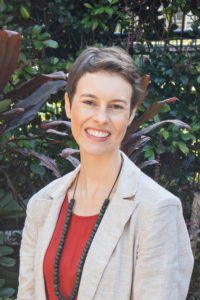 Rescue Initiative (CRRI).
Rescue Initiative (CRRI).
